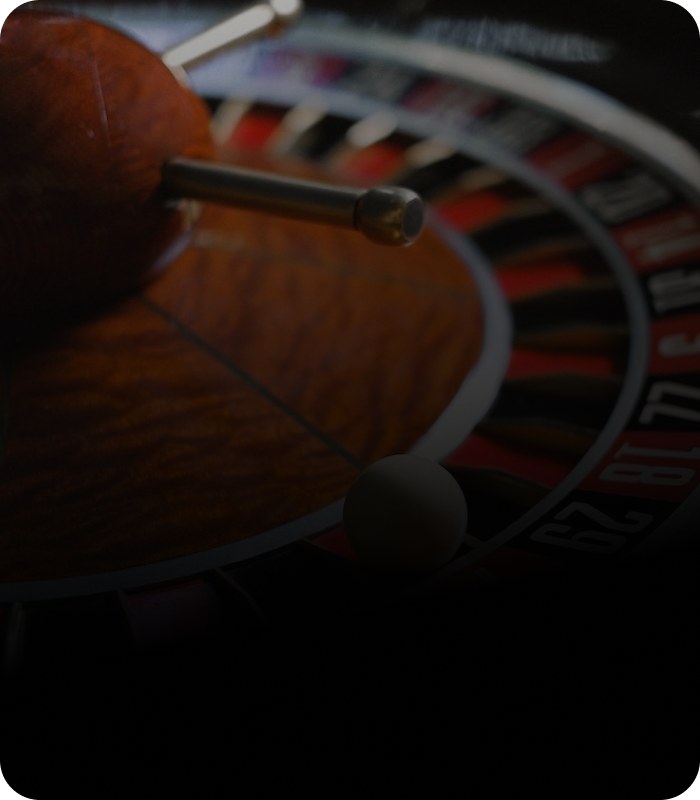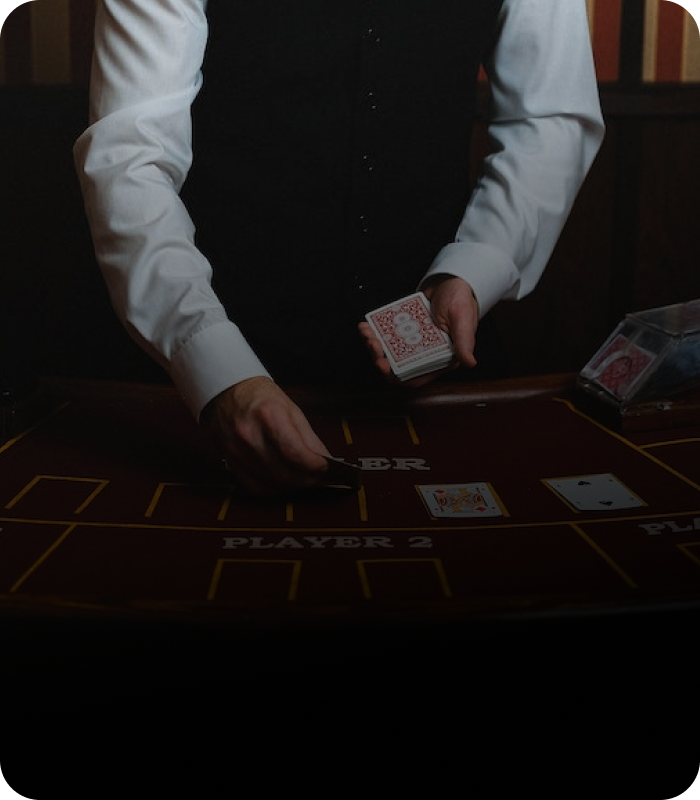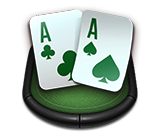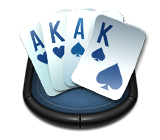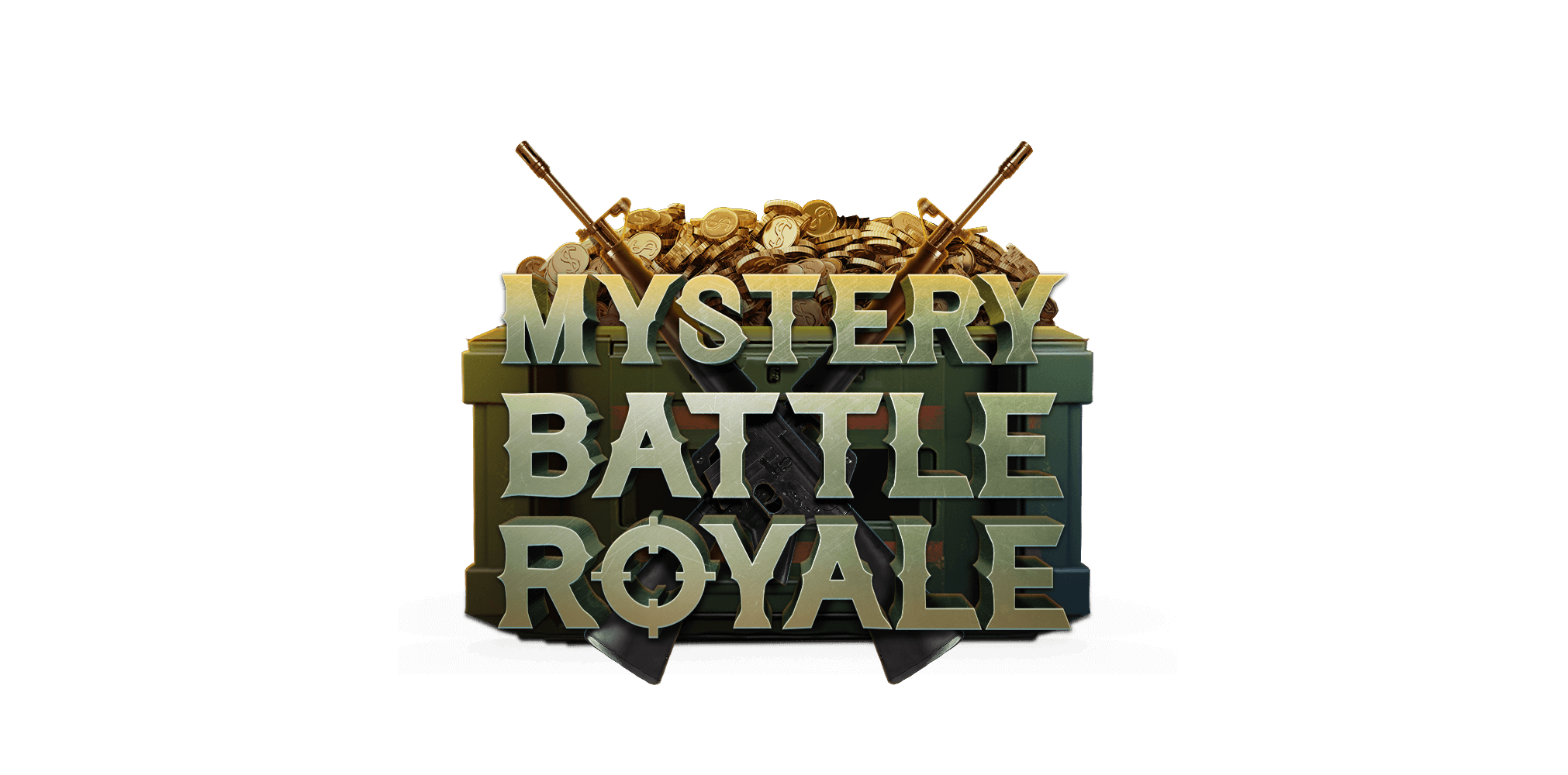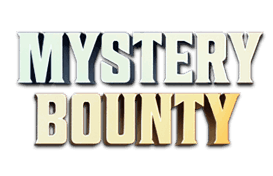
In this article, we’ll talk about the worst possible starting hands in Omaha poker. We’ll help you learn how to spot an undesirable holding and explain exactly why it’s so bad. And as a result, your Omaha game should begin to improve.
With four hole cards available in Omaha, there are 16,432 possible combinations. So it’s vital to understand how to filter out the worst starting hands. Okay, are you ready to sharpen up your Omaha skills? Then let's begin!
Worst Possible Omaha Starting Hands
Everyone knows that an offsuit 7-2 is the Hold’em hand that performs worst of all. But that particular form of poker only offers 169 combinations of starting hands. With two extra cards to use, Omaha gives us a potential 16,432 permutations.
With so many possibilities, there’s not much value in listing off every terrible Omaha holding in order. But what we can do is categorise each type of hand and explain exactly why it’s considered a bad starting hand. That way, by the end of this guide, you’ll understand how to assess the quality of a hand for yourself.
Four of a Kind
Good starting hands in Omaha always include a pocket pair of aces. So surely having all four aces is the nuts? Actually, no. Four-of-a-kind is the worst possible combination you could be dealt and should immediately be mucked, without exception.
The key rule in Omaha is that you can only use two cards from the four in your hand. That’s not optional, like in Hold’em, where you might use one or neither of your cards. It means you must use exactly two of the four. So if you hold all four of a specific card, you can never improve on a pair.
But at least you can make the nut flush, right? Absolutely not! Remember, you need to use two cards. In order to make a flush, you’d need two of the same suit among your hole cards. And with four of a kind in your hand, that can’t possibly be the case.
Naturally, since the deuce is the lowest value card in the deck, 2 2 2 2 is the worst possible Omaha starting hand.

Three of a Kind
Although not quite as poor as four of a kind, three of the same card is a terrible starting hand for similar reasons. At least there is still one card in the deck that can improve your hand from a pair to three of a kind. However, drawing to a single out is never a sensible strategy. Besides, three-of-a-kind is nowhere near as strong in Omaha as it would be in Hold’em.
One redeeming feature of this type of hand is that you can at least potentially make decent flushes. A combination like A A A K could arguably be playable in certain types of games. Kings and the remaining Ace could result in a powerful hand like a full house. While three Clubs would bring you the nut flush.
As a general rule though, three matching cards in the hole means they should be heading straight towards the muck.
All Suited
It might look pretty holding four of the same suit in your hand, but it’s actually a real hindrance. Remember, the worst Omaha starting hands all involve duplicate hole cards because you can only ever use two at a time. For every additional card you have, you’re just wasting an out.
This holds as true for suits as it does for the numerical value of a card. There are 13 of each suit in a standard deck, meaning you have 11 outs in order to make a flush. But if all four hole cards are suited, that number drops to 9.
Aside from the issue of flushes, suited cards mean that it’s impossible for you to hold a pair. So you obviously have no chance of improving to three of a kind, a full house, or quads.
While it’s obviously terrible to hold four of the same suit, three is not really much better. Your flush chances are marginally better and you could possibly have a pair. But the ideal starting hand requires all four cards to be working in combination. Omaha is a game of fine margins and you just can’t afford to give your opponents any sort of edge.
Rainbow Cards
Now it’s time to talk about Omaha starting hands made up of four different suits. This type of holding is not as bad as the ones we’ve already covered. After all, something like A A J T could be very playable. Top pairs, multiple straight draws, and lots of high-value cards are never a bad thing.
Once again though, decent Omaha hands come down to how “connected” they are. As in, how well do the four individual cards work together? Whenever you have four different suits, you’re denying yourself the possibility of making a flush. And this reduces the strength of your hand.
Mid-Range Cards
Finally, we need to talk about hands made up of medium-value cards. A hand like T 9 8 7 can work very well since it can make straight flushes and a ton of wrap draws. While you might not be in line for hands like full houses and quads, there’s still a lot to work with.
However, if the starting hand is made of unsuited middling cards, we have a big problem. Something along the lines of J 9 7 6 is absolute trash and should immediately be discarded. All you can really hope to achieve is a straight. And, depending on the exact runout, it’s not even guaranteed to be the nut straight.
In terms of pocket pairs, you only want to see mid-strength examples if you’re holding two of them and they’re double suited. Something like 8 8 7 6 is simply not worth the trouble. But even 8 8 7 7 is risky, as you’re always likely to flop bottom or middle set. This will tempt you into playing big pots against better sets, costing you money.
What Makes an Omaha Hand Bad?
As we’ve just learned, the definitive feature of a bad Omaha hand is a lack of connectivity. Take everything you’re looking for in the best Omaha starting hands and flip it around - these are the worst possible holdings.
You should always be looking to play hands that have potential. Two premium pocket pairs, double suited hands, multiple straight and flush draws are all optimal. The fewer possible combinations present in your starting hand, the worse it looks.
Worst Starting Hands in Omaha Hi-Lo
Before we wrap things up, a quick word about Omaha Hi-Lo. In this variant of the game, the pot is equally split between the best “high” and the best “low” hands. So in addition to the aforementioned factors, you also need to maximise your chances of taking both halves of the pot.
As such, mid-range cards decrease even further in value. Earlier on, we suggested that a hand like T 9 8 7 could have a good amount of playability in Omaha. But in Hi-Lo, this is a particularly dangerous holding.
Imagine a board of 6 5 9. You already have the nut straight and you’re drawing to a low. But that low is going to be the worst qualifying hand should you get there. While the high hand is vulnerable to the flush draw, as well as overcards that could better your straight.
Conclusion
Starting hand selection is arguably more important in Omaha than a game like Hold’em. Even the best possible pre-flop hands are never as far ahead as you might think. So it’s important to be highly selective and not give opponents a chance by playing junk.
Learning to filter out the worst possible Omaha starting hands is a great way to improve your bottom line. Don’t waste time playing hands that feature four of the same card value or suit. Focus on connected cards, but not those of medium strength.

.webp)









